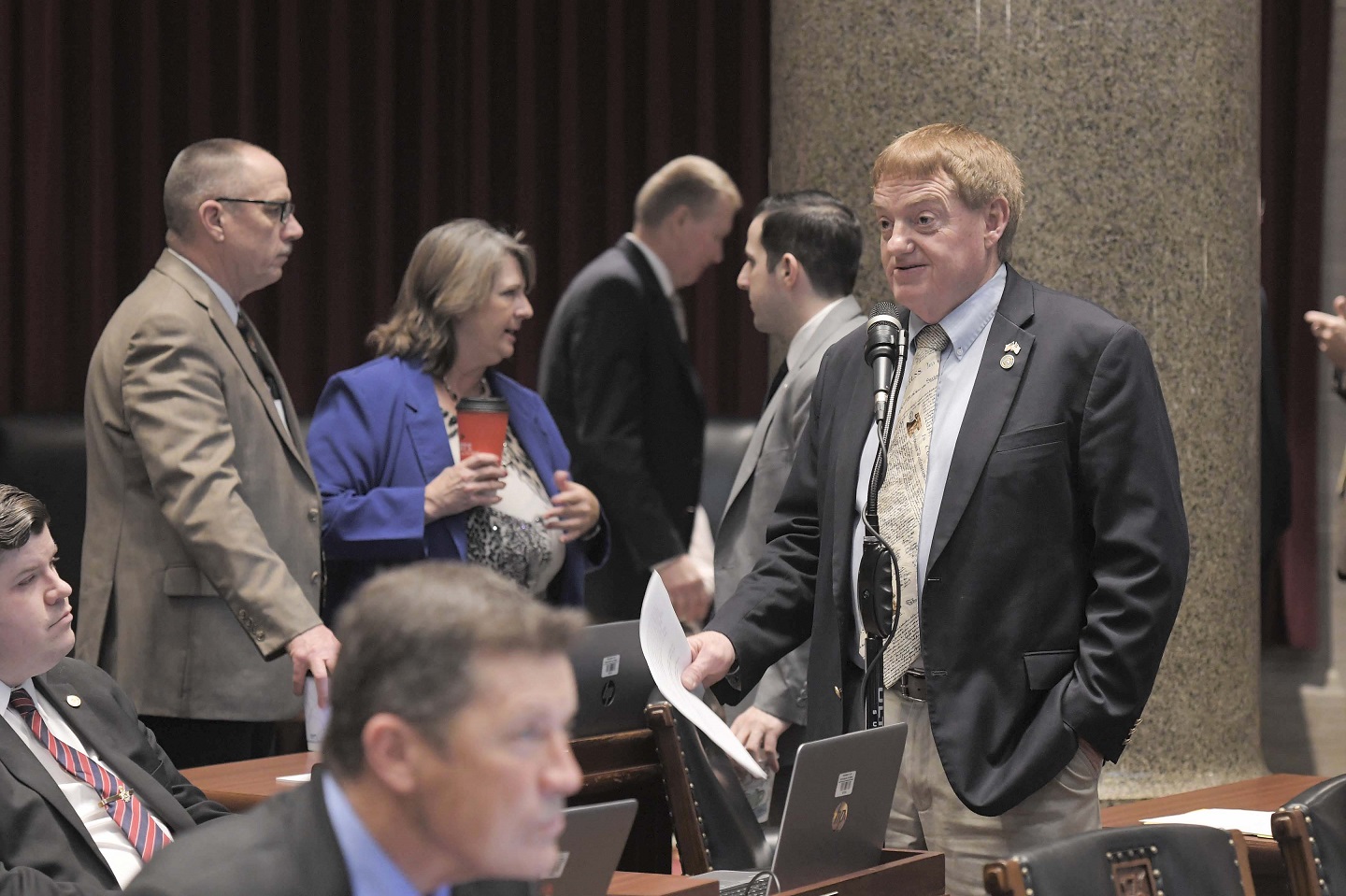The Missouri House has given initial approval to five bills related to crime issues in Missouri. The bills were filed in a special session of the legislature called by Governor Mike Parson (R).

Republicans say the legislation will help address violent crime in a year when Kansas City is on pace to set a new record for the annual number of homicides, and St. Louis is in the midst of a wave of murders and other violence. Democrats decried the legislation as accomplishing nothing and said the special session was called only for political reasons.
House Bill 66 would create a fund to pay for law enforcement agencies to protect witnesses or potential witnesses and their immediate families during an investigation or ahead of a trial.
St. Louis City representative Peter Merideth (D) said the bill would be meaningless because there would be no money in the fund until it is appropriated in budget legislation.
“If we really believed this was an emergency wouldn’t we be funding it right now?” asked Merideth.
Bill sponsor Jonathan Patterson (R-Lees Summit) said his bill will create the program and funding can come later, as is usually the case with newly created state programs.
“I trust the mayors of our state. They say it’s an emergency. I trust the law enforcement in our state. They say it’s an emergency,” said Patterson. “We could have funded it [during the special session]. You’d have to ask yourself, ‘does that fit within [the governor’s call of topics to be addressed in this special session]?’ I don’t know.”

Merideth said he would still support the bill, but also expressed concern that the offer of state money to pay for a potential witness’ room and board could be used to incent false testimony and lead to wrongful convictions.
The House voted 147-3 to send HB 66 to the Senate.
House Bill 46, sponsored by Representative Ron Hicks (R-Dardenne Prarie), would temporarily lift the requirement that St. Louis Police officers, EMS personnel, and firefighters live in the City of St. Louis. The residency requirement would be reinstated after September 1, 2023.
“Out of all the things in the governor’s call this is the one really good thing that will immediately improve the conditions of [St. Louis’] crime problem,” said Representative Justin Hill (R-Lake St. Louis), a former law enforcement officer and undercover detective. “Men and women in blue want to to work in the city. Right now they don’t feel empowered enough by their city to stay there.”
St. Louis area Democrats say the bill infringes on local control because St. Louis residents are set to vote on whether to remove the residency requirement in November.
“This comes up about every eight years in our city. It has never passed,” said St. Louis representative Wiley Price (D).
The House passed HB 46 117-35.
House Bill 11 would increase the penalty for endangering the welfare of a child from a misdemeanor to a first-degree felony. Bill sponsor Nick Schroer (R-O’Fallon) said criminals are taking advantage of juveniles by giving them guns and encouraging them to participate in violent crime.
The House passed HB 11, 117-33.
House Bill 16, also sponsored by Schroer, would define the unlawful transfer of a weapon to a minor as the lending or sale of a firearm to a minor for the purpose of interfering with or avoiding an arrest or investigation. It would change current law to allow such transfers to be a felony even if done with parental permission.

“It’s very important that we focus on these adults … that are victimizing our youth. Sometimes it’s resulting in their death, sometimes it’s resulting in them going into the juvenile justice system,” said Schroer. “Amending this law pursuant to the conversations we’ve had across the state it’s going to lead to a decrease in crime.”
St. Louis representative Rasheen Aldridge (D) said those bills will not reduce crime and won’t help his city.
HB 16 was sent to the Senate with a 103-45 vote.
The House also approved 133-11 House Bill 2, sponsored by Representative Barry Hovis (R-Whitewater), which aims to clarify current law on the admissibility of witness statements when a witness has been tampered with or intimidated. If a court finds a defendant tried to keep a witness from testifying and the witness failed to appear, an otherwise inadmissible statement from that witness could be allowed into evidence.
All of these except for HB 16 were passed with a clause that would make them effective immediately upon being signed by the governor.
